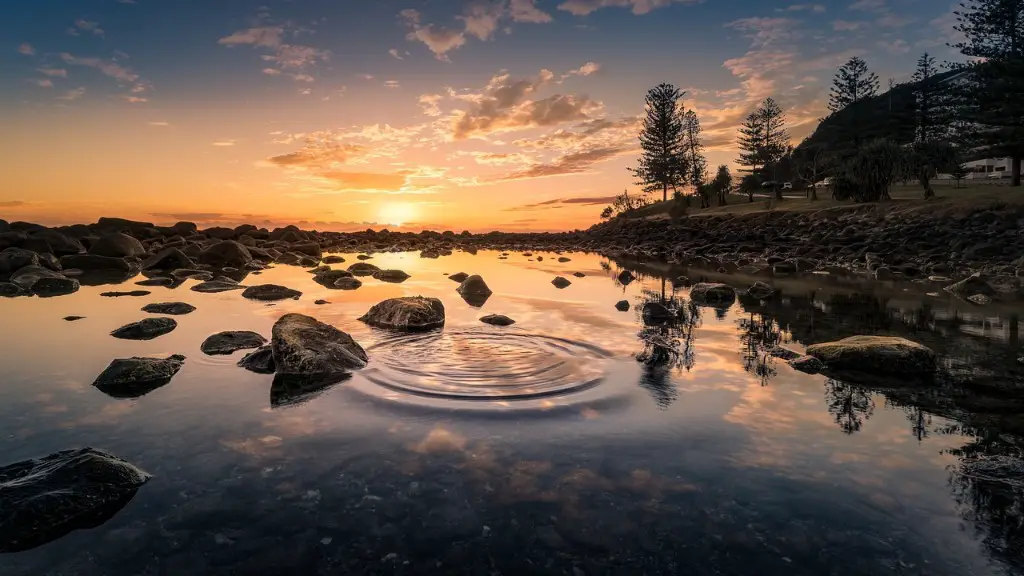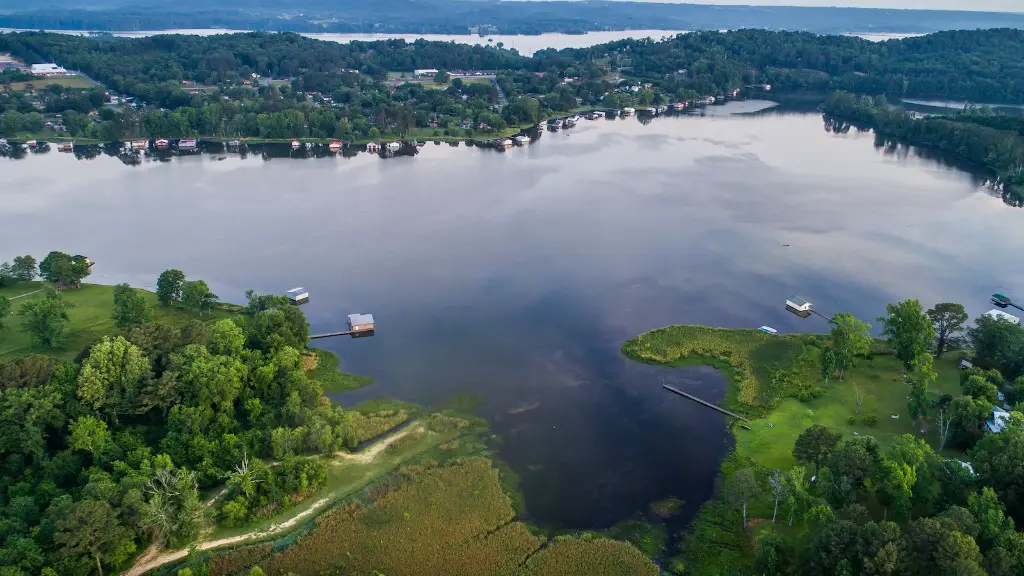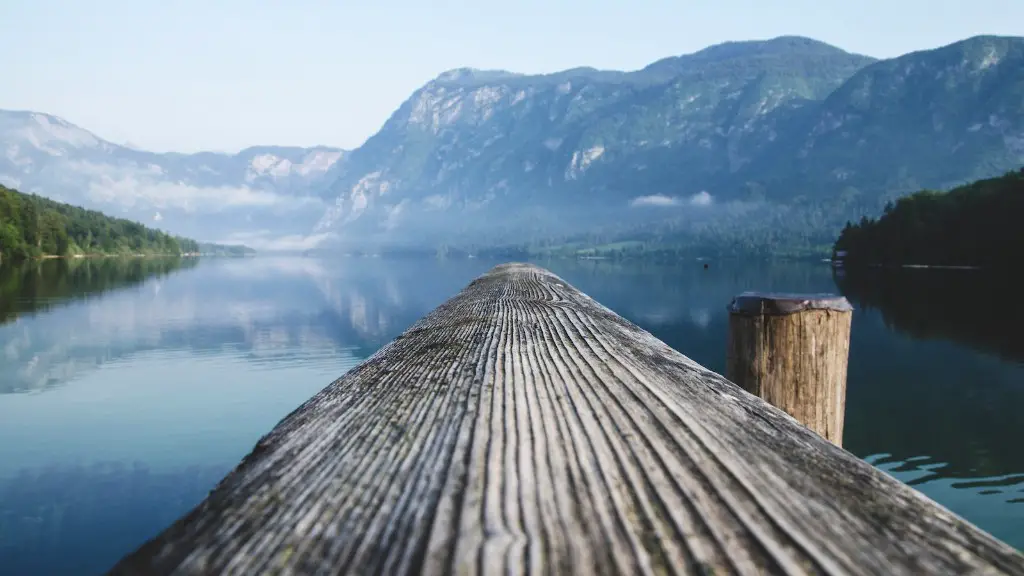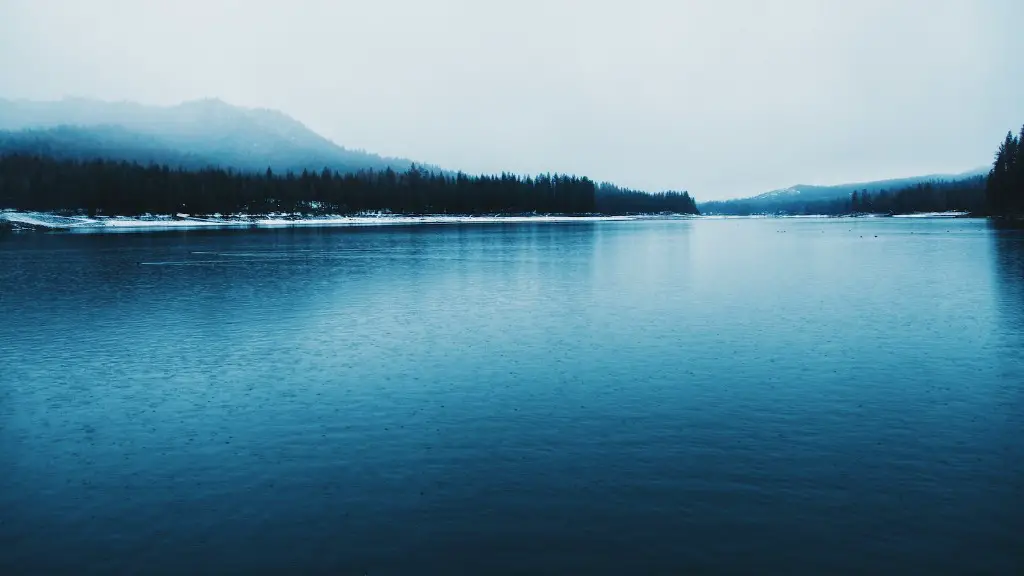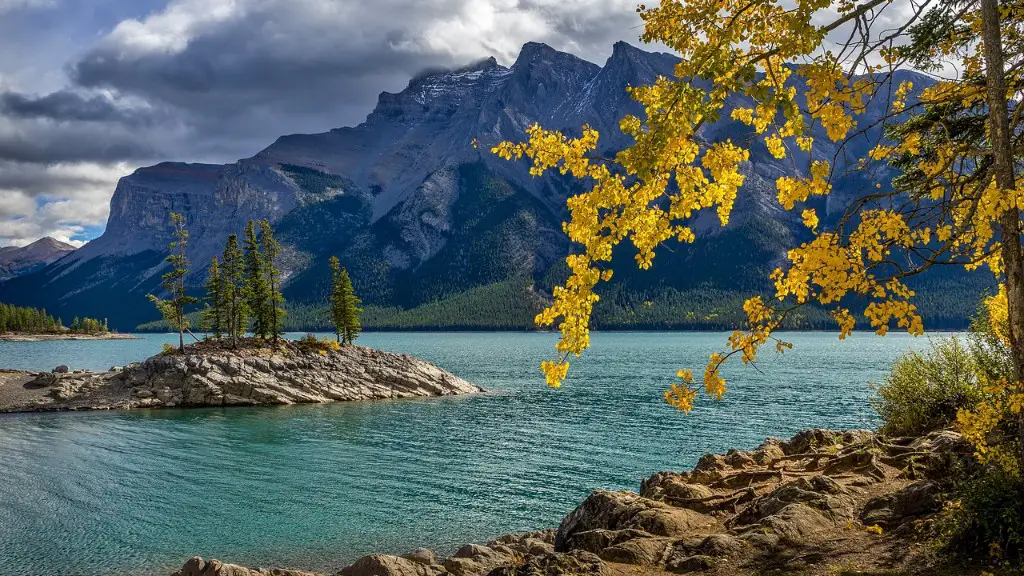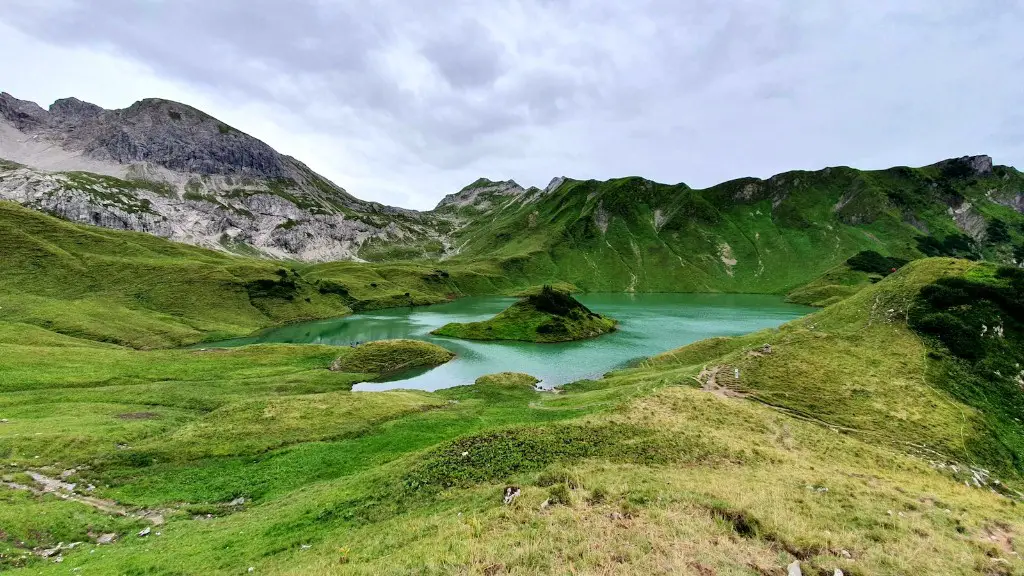Lake Baikal is the oldest and deepest lake in the world and is located in Russia’s Siberia region. It is so massive that it covers an area of 12,248 square miles and stores about 5,521 cubic miles of freshwater – nearly one-fifth of the planet’s total. In 1996 it was declared a UNESCO World Heritage Site.
This lake has some remarkable physical characteristics, primarily due to its enormous depth. Its deepest point measures a staggering 5,387 feet below sea level, and it’s home to a variety of flora and fauna found nowhere else. Lake Baikal is estimated to be 30 million years old and has more water surface area than any other lake in the world. It’s also the world’s clearest and most pure lake in the world with visibility of up to 40 meters.
This region was first populated by the Evenks, an ethnic minority that later adopted a nomadic lifestyle of hunting and fishing. For centuries, the Evenks lived near the shore of the lake, using it as a source of fish and possible revenue. They became known as the “Sea People” due to the strong connection they had to the lake.
Due to its vastness and geographic isolation, Lake Baikal has been able to remain relatively untouched and preserved. The natural areas surrounding the lake, which include taiga forests, alpine tundra, and meadows, are home to numerous rare and threatened species, including the endangered Baikal seal, and snow leopards, wolverines, and bears, as well as a great variety of birds and fish.
Unfortunately, Lake Baikal is now facing a variety of environmental threats, including climate change, industrial pollution, overfishing, and uncontrolled tourist development. The most serious threat, however, is the construction of a new pipeline which will be used to transport oil between two major cities, Irkutsk and Krasnoyarsk, and is set to run within 500 meters of the lake’s shoreline. Environmentalists fear that an oil spill could cause irreparable damage to the lake’s unique ecosystem.
Despite these environmental threats, there are some positive things happening around Lake Baikal. In recent years, there’s been a surge in eco-tourism and volunteer conservation efforts which have helped raise awareness about its importance. And, thanks to the ongoing efforts of local and international organizations, Lake Baikal is now officially on the list of protected UNESCO sites.
The Impacts of Climate Change On Lake Baikal
Lake Baikal is a sensitive ecosystem and even slight changes in its climate can have a huge impact. Climate change is already having a negative effect on the lake, with rising temperatures causing its already low water levels to drop even further. Moreover, warmer temperatures can make the water more acidic and reduce its oxygen levels, which can disrupt the food chain, decrease spawning grounds and reduce fish populations.
According to research, Lake Baikal’s seismic activity has also been affected by climate change. This has led to an increase in the number of seismic events around the lake and scientists fear that this could lead to more powerful and dangerous earthquakes in the future.
In addition, rising temperatures have caused the lake’s permafrost to thaw, which could have numerous negative consequences. For example, melting permafrost releases thousands of methane bubbles, which can increase the lake’s acidity and thus disrupt its delicate ecosystem.
Climate change is also causing more intense storms and rainfall in Siberia, which in turn can lead to severe flooding in the region, putting Lake Baikal at risk of contamination by toxic chemicals, agricultural runoff and sewage.
The stark realities of climate change will require governments to act fast to protect Lake Baikal before it’s too late.
Conservation and Preservation Efforts of Lake Baikal
Local and international organizations have been working hard to preserve and protect Lake Baikal’s fragile ecosystem.
The most prominent organizations working in this area are World Wildlife Fund (WWF), which is focused on reducing overfishing, promoting sustainable tourism development, and reducing pollution; and Greenpeace Russia, which is focused on preventing the construction of the oil pipeline.
Several campaigns have been launched in the past few years to raise awareness of the threat posed by climate change and to encourage people to take action. Additionally, several scientific studies have been conducted in the region to better understand the impacts of climate change on the lake and its surrounding area.
However, the most important step in protecting Lake Baikal is the enforcement of effective regulations to curb industrial pollution, overfishing and other environmental threats. The government of Russia has already taken steps in this regard, introducing measures such as banning large-scale predatory fishing and implementing ecological protection regulations.
It is only through collective action and efforts that the world will be able to preserve the natural beauty of Lake Baikal.
The Local Communities Around Lake Baikal
The local communities that inhabit the region around Lake Baikal are closely connected to this unique and fragile ecosystem.
These communities have been adapting to the lake’s surroundings for centuries, relying on it for their subsistence and livelihoods. They have crafted their own set of sustainable fishing practices, which include regulations to ensure the lake’s continued abundance of fish species. They also rely on the lake for their drinking water, and to generate electricity, thanks to the lake’s large hydroelectric potential.
The local communities are also heavily invested in the lake’s conservation and are participating in efforts to promote monitoring and assessment in order to better understand the lake’s changing ecology.
In addition, the local communities have become increasingly involved in eco-tourism, allowing visitors to experience the unique ecosystem of Lake Baikal while simultaneously helping to generate much-needed revenue to support their communities.
Supporting the local communities around Lake Baikal is essential in the fight to conserve this unique region and its fragile ecosystem.
Future Outlook of Lake Baikal
While Lake Baikal’s future is still uncertain, it’s important to remember that it has endured extreme environmental conditions and threats for centuries, including natural disasters, climate change, and industrial pollution.
Many of the threats it is facing today have been brought on by human actions, but the lake is resilient and with the help of collective efforts, it can still be a source of life and beauty for future generations.
In addition, the local communities around the lake have proven their commitment to preserving this special ecosystem and have been actively involved in conservation and sustainable fishing efforts.
The fight to protect Lake Baikal is not over, but with ongoing awareness, efforts, and support from the local communities, the world can ensure that this ancient region will be preserved and enjoyed for years to come.
Economic Benefits of Lake Baikal
In addition to its beauty and unique biodiversity, Lake Baikal also stands to benefit greatly from economic development.
The lake’s hydropower potential has been identified as a major source of renewable energy. Hydroelectric plants have been built along the lake’s shores, providing much-needed jobs and additional revenue to the local communities.
Tourism is also a major driver of the local economy, with visitors coming from all over the world to experience the lake’s unique beauty. Ecotourism provides visitors with an opportunity to witness the lake’s incredible biodiversity and disconnect from the hustle and bustle of modern life.
Lake Baikal is also home to vast natural resources, such as oil and gas, which can be used to generate even more economic development in the region. However, such projects must be carefully managed in order to safeguard the lake’s fragile ecosystem.
With proper management and investment, Lake Baikal will be able to provide both economic and environmental benefits for generations to come.
The Significance of Lake Baikal to Russia
The significance of Lake Baikal to the people of Russia goes beyond its economic opportunities. It is a symbol of national pride and an integral part of Russia’s past, present, and future.
The lake is a source of inspiration for many aspects of Russian culture, from literature and art to film and music. It has also inspired several generations of scientists, who have used its depths to unlock the mysteries of the natural world.
The lake is also a source of national identity, used in symbols and logos to represent the spirit of Russia. Additionally, its natural resources have been extremely valuable to the country throughout the centuries, providing jobs, sustenance, and revenue.
Lake Baikal is also a source of hope and positivity, as more and more people become aware of its importance and join the fight to protect and preserve it.
For many people, Lake Baikal is an invaluable part of Russia’s past, present, and future. It is a symbol of national pride and the foundation of Russia’s rich and vibrant culture.
